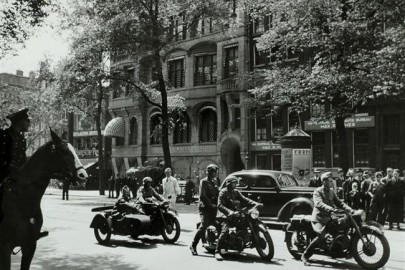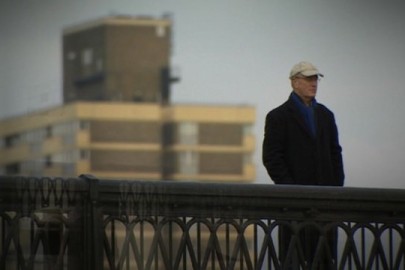Elberry reads an illuminating biography of a ‘cocky, mordant, determined’ playwright…
Ben Jonson had the misfortune to be a late 16th Century English playwright. Who would read one of Jonson’s diligently allegorical plays if he could read Hamlet or King Lear? Certainly, at first glance Jonson seems a lumbering, uninteresting writer, half-stuck in the Middle Ages, in love with tedious allegory and worldly reputation. And yet he was much besides: a huge fat man, a badass Catholic in a perilously anti-Catholic time, a duelist and killer, a poet and playwright, a prodigious drinker, reputed to have drunk Shakespeare to death, a wit and brawler and manly curmudgeon.
Although much is known of Jonson, much has been lost, or was never revealed. Donaldson nonetheless does a good job with various scattered anecdotes and rumours (and there are many such about Jonson). A picture emerges, of a belligerent, sensitive man; proud, impulsive, violent, a diligent scholar, a moralist, a drunk; a typically Elizabethan contradiction.
The 16th Century was a time of unusual, disorientating change: Roman Catholicism abruptly outlawed, and, with the dissolution of the monasteries, a new class of moneyed upstarts arising, buying land and titles. Shakespeare, Marlowe, Jonson, Webster are venerable enough figures today, fodder for braindead undergraduates and eminent academics; four hundred years ago, they were lower-class ruffians and brazen ne’er-do-wells.
Jonson was born a rung or two above poverty; his father died; he worked briefly as apprentice to his bricklayer stepfather; and eventually he escaped and became a playwright. He was, however, an extremely well-read bricklayer’s stepson, fairly brutally educated at Westminster School, in Latin, Greek, and classical rhetoric. He wrote plays for money but they are far removed from Shakespeare’s, or Marlowe’s even (and Marlowe was himself an adept classicist). Jonson’s was educated in deliberate emulation, choosing and imitating an author – in his case, Horace. However scurrilous and comic his plays, for Jonson writing was a noble, civilised, and civilising, activity. He is, in this, closer to Sidney than Marlowe or Shakespeare:
I could never think the study of wisdom confined only to the philosopher, or of piety to the divine, or of state to the politic. But that he which can feign a commonwealth (which is the poet) can govern it with counsels, strengthen it with laws, correct it with judgements, inform it with religion and morals is all these. We do not require in him mere elocution, or an excellent faculty in verse, but the exact knowledge of all virtues, and their contraries; with ability to render the one loved, the other hated, by his proper embattling them.
Herein lies the attraction and difficulty of Jonson. Jonson was a notable drunk, killed a man in a duel and another in a brawl, yet felt free to moralise. The plays are not the man; there is a certain classical distance, far from the shocking contact of Marlowe or Webster. Jonson often seems to remove himself from his works, leaving an elaborate complexity of character and plot to do the work. This takes some getting used to.
Biography is often impertinent, idle, intrusive. Donaldson’s book, however, serves a function: it helps with the plays. Jonson felt at home in allegory, with static, relatively unambiguous character; and yet he was a bricklayer’s stepson who hobnobbed with nobility, a writer of court masques who was repeatedly imprisoned, a scholar and a killer. Knowing something of “the real Jonson” is useful. As Donaldson writes:
The abrupt revolution in the fortunes of Jonson’s father strikingly prefigures the equally abrupt revolutions that were to occur within Jonson’s own career, as he shifted on more than one occasion between Whitehall and a state prison, between the houses of wealthy patrons and conditions of dismal poverty. His spiritual shuttling between the English and Roman religions can be seen likewise, in the longer perspective of family history, to have its precedent in the movements of his grandfather between country and country, faith and faith. Throughout his long career Jonson was to retain many of the natural instincts of the border dweller: the capacity above all, in his moral and professional life, to shift ground while professing to have remained forever in the same spot.
Jonson’s desire for allegorical simplicity was in the face of his own inveterate complexity. Thus, in his years as a Catholic he secretly wore a crucifix inside his shirt; not a prudent decision in that time and place, but perhaps he felt a need to affirm his own credal identity, to become almost allegorical in the act. There is an admirable obstinacy to Jonson; he underwent many changes but insisted on whatever he happened to be, in the moment. Donaldson has quite a large section in the Index titled “Troubles with the law”, most of these entries to do with Jonson’s reckless defiance of common sense and the law. On one of his spells in prison (for sedition), presumably under torture:
‘In the time of his close imprisonment under Queen Elizabeth,’ he told Drummond many years later, ‘his judges could get nothing of him to all their demands but “ay” and “no”.’
This is a man who walked from London to Scotland and back, possibly as a bet (Donaldson’s theory). This is a man who allegedly drank Shakespeare to death. This is a man who tutored, or tried to tutor, Walter Raleigh’s deranged son, Wat. One of the many pleasures of Donaldson’s book are these anecdotes; for example, of Wat Raleigh, we learn he misbehaved at a distinguished dinner and:
Sir Walter being strangely surprised and put out of his countenance at so great a table, gives his son a damned blow over the face. His son, as rude as he was, would not strike his father, but strikes over the face the gentleman that sat next to him, and said, ‘Box about: ’twill come to my father anon.’
Jonson escorted Wat to Paris, became grossly drunk as was his wont; Wat Raleigh:
laid him on a cart which he made to be drawn by pioneers [workmen] through the streets, at every corner showing his governor stretched out, and telling them that was a more lively image of the crucifix than any they had; at which sport Raleigh’s mother delighted much, saying, his father young was so inclined; though the father abhorred it.
Alongside such anecdotes, the more recognisably human Jonson is to be found in some of his poems, for example ‘On My First Sonne’ , an epitaph for his son Ben, who died aged 7; and another for the 13-year-old boy actor Salomon Pavy. Pavy and the young Ben died round about the same time, and to Jonson looked somewhat alike (Pavy a little, quick, dark, clever boy). Jonson thought of his epitaph to Pavy as a miniature play, for the boy-player now dead. This note of tenderness and fragility, – “alas, too late” – this too is of a part with the drunken, belligerent playwright.
Donaldson’s book is scholarly, discerning and sensitive, as it needs to be for such a various and demandingly strange subject. If the real Ben Jonson seems just out of reach that is as it should be; we are left with the faint afterimage, of a cocky, mordant, determined man, and that is perhaps all the Ben Jonson we shall have.











Thanks for the review! I always rated Volpone as a decent play, psychologically shallow compared to Shakespeare’s stuff, but very entertaining nevertheless
I take my hat off to you for getting through such a big book (how infantile I sound, but it’s true that I don’t often tackle seven hundred page works, which I have the idea this is [I don’t because I’m too lazy, yes, yes, yes, there’s no denying the truth]), and thank you for crystallising some of the reasons I don’t like biography – “Biography is often impertinent, idle, intrusive” .I’ve been wondering for so long what it is that makes me find them hard to enjoy, when so many other people seem to adore them. Now I know at least part of why.
This bio is actually only about 450 pages long, i think (with another 200 of references). i don’t feel the book is instrusive here, because very little is really known about Jonson, but take a 20th C bio of, say, Beckett, and you have a lot of personal details which are interesting, of course, but i don’t feel he would have liked the idea of promiscuously sharing them with all & sundry. Perhaps he feels differently now he’s dead, however it still seems a bit iffy.
Yes it often seems a bit mean when you read something scurrilous, knowing that the subject is dead and not around to defend themselves of the charge…
It would be quite entertaining if great writers could come back from the dead to duff up their biographers.
Good epitaph as well, though misspelled: ‘O Rare Benn Johnson’.